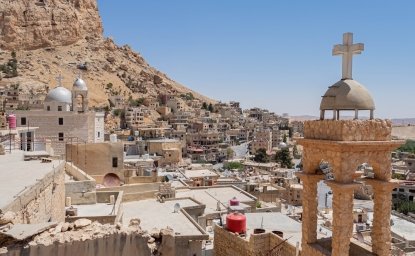#171 The Role of Political Parties in the Return to Democracy in the Southern Cone: Rapporteur's Reports

By Felipe Aguero, Charlie Gillespie, and Timothy Scully
Contents
Introduction
Creating Stable Party Systems: Lessons from the Past
The Importance of Sound Electoral and Political Legislation
Empowering Civilians Through Sound Civil-Military Relations
The Interplay of Politics and Economics
From the Introduction
This working paper consists of a collection of rappeteurs' reports of presentations at the September 9- 12, 1985 conference, "The Role of Political Parties in the Return to Democracy in the Southern Cone," sponsored by the Latin American Program of the Woodrow Wilson International Center for Scholars, Washington, D.C. and the World Peace Foundation, Boston. Since its inception in 1977, the Wilson Center's Latin American Program has most clearly expressed its normative commitment to democracy through support for the scholarly analysis of national political regimes in the region. In 1979 the program began a special focus on this topic by sponsoring a series of meetings and conferences entitled "Transitions from Authoritarian Rule: Prospects for Democracy in Latin America and Southern Europe." The results of this ambitious effort, four volumes of essays co-edited by Guillermo O'Donnell, Philippe Schmitter, and Laurence Whitehead, will be published in late 1986 by the Johns Hopkins University Press under the title Transitions from Authoritarian Rule. In the seven years since the initiation of the "Transitions" project, there has been a momentous change in the character of the political regimes governing countries in Latin America. In 1979, fourteen of the twenty countries on the mainland between the Rio Grande and Tierra del Fuego were ruled by military governments. As of early 1986, only two of those fourteen continue to have military governments, Chile and Paraguay, and the one new military regime, Suriname, has scheduled national elections for 1986.
In part because of democracy's positive impact on national justice and civil rights, citizens throughout the hemisphere have broadly welcomed this change. But there has also been deep-rooted concern, based on the question, "Is the return to democracy permanent or is it part of a cycle of military and civilian regimes?" After all, in the late 1950s South America was largely military ruled; the 1960s saw mainly civilians at the heads of governments; and the 1970s witnessed the widespread military takeovers and abridgements of civil rights, from which the new democracies have emerged.
In an attempt to grapple with this question, and building on the work of the "Transitions" project, The Latin American Program undertook, together with the World Peace Foundation, to examine the role of one set of particularly important institutions in the process of the return to democracy --political parties. Work on a political parties project began in 1983. It quickly became limited to the Southern Cone because of the complexity of the subject and the richness of the cases of Argentina, Brazil, Chile, and Uruguay. The centerpiece of that effort was the conference whose discussion is reported in this Working Paper.

Latin America Program
The Wilson Center’s prestigious Latin America Program provides non-partisan expertise to a broad community of decision makers in the United States and Latin America on critical policy issues facing the Hemisphere. The Program provides insightful and actionable research for policymakers, private sector leaders, journalists, and public intellectuals in the United States and Latin America. To bridge the gap between scholarship and policy action, it fosters new inquiry, sponsors high-level public and private meetings among multiple stakeholders, and explores policy options to improve outcomes for citizens throughout the Americas. Drawing on the Wilson Center’s strength as the nation’s key non-partisan policy forum, the Program serves as a trusted source of analysis and a vital point of contact between the worlds of scholarship and action. Read more

Explore More
Browse Insights & Analysis
Latin American Program Working Paper Series (151-200)


